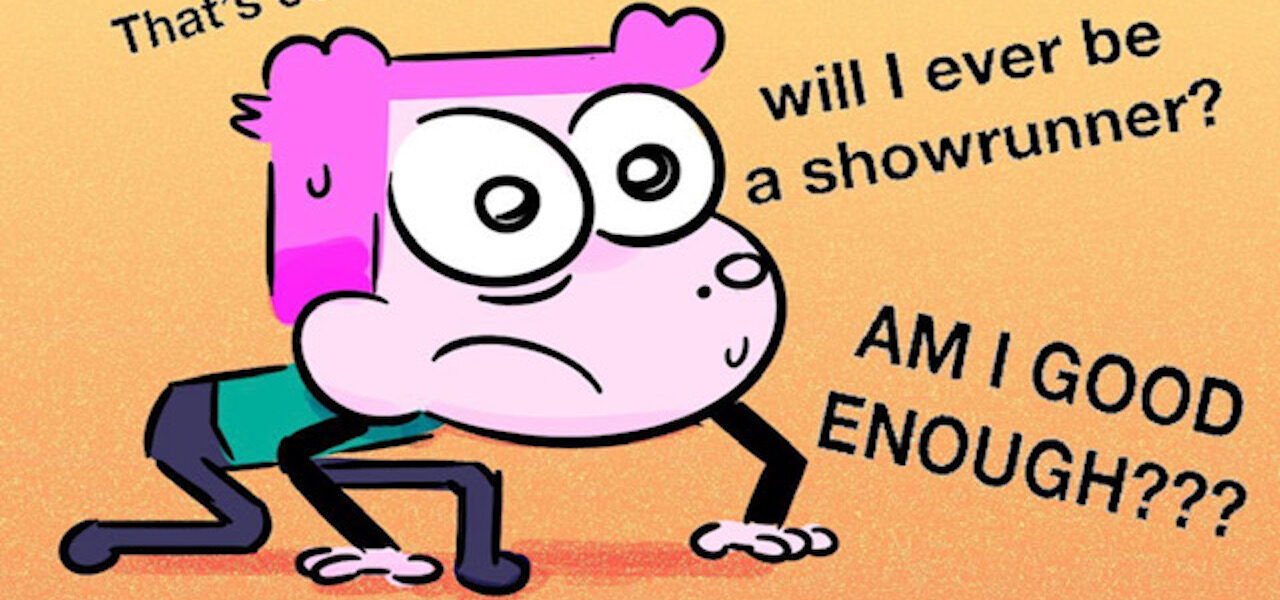
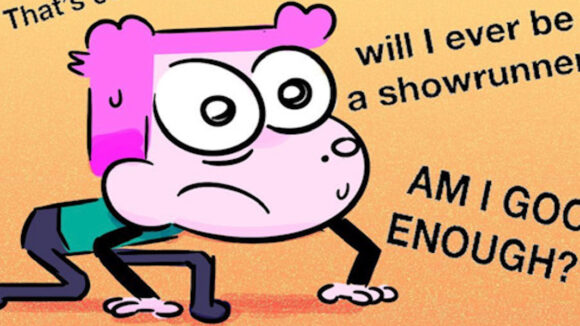
Industry Artist Charlie Gavin Opens Up About Mental Health And Work
In recent years, the animation industry has enjoyed an overarching narrative of success. The pandemic has showcased its resilience. The rise of streaming has fueled demand. And so on.
But what’s good for animation isn’t necessarily good for those who make it. The conditions in which artists work can take a toll on their mental health. That has always been true, and is perhaps more so now than ever.
One thing is changing for the better: people’s willingness to speak publicly about how their work affects their wellbeing. We came across a fine example of this trend on Instagram. Charlie Gavin is a director and storyboard artist whose credits include Jellystone, Big City Greens, and Harvey Beaks. He is also a comics artist who chronicles his experiences of the animation industry in wryly funny strips online.
Gavin started posting autobiographical comics to Instagram (@charliepgavin_art) before the pandemic, but in recent months he has stepped up his activity, coming to focus on his mental health and how it relates to his work. Each comic focuses on a different issue, be it time management, the pressure to maintain a social media presence, or the anxiety of seeing colleagues advance quickly in their careers.
As part of a new series of articles about mental health and animation, we spoke to Gavin about these comics: why he creates them, how people react, and what he’d like to see change in the industry …
Cartoon Brew: Why did you start posting about your experiences on social media?
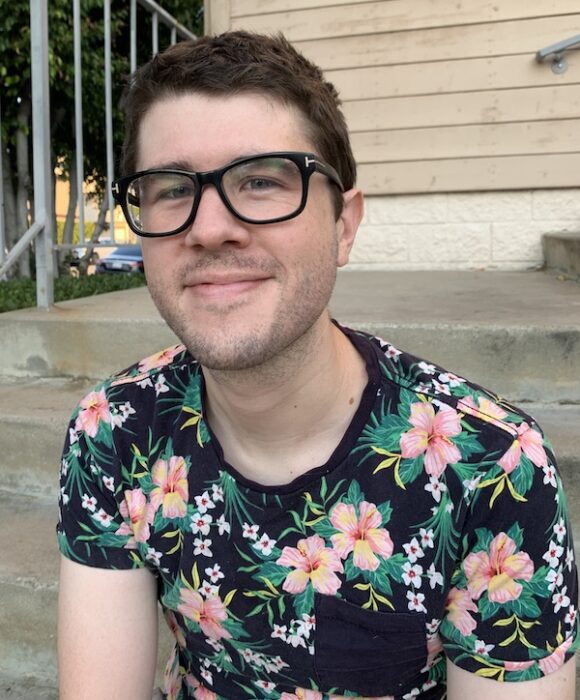
Charlie Gavin: I originally started making autobiographical comics after attending Comic Arts LA in 2019 and being inspired by the comics and zines my peers were making. It was only after posting comics for a year or two that I began to home in on talking about the struggles of working in the animation industry, especially as they relate to mental health. I’ve had a rocky road of recovery after getting sober in 2019, and it felt disingenuous not to talk about that and how it affects my relationship with animation.
I’m also super inspired by comics like Allie Brosh’s Hyperbole and a Half — the way she speaks about her own mental health problems in a way that’s relatable and funny is amazing (not that I’m comparing myself to her because her work is on another level).
So what I try to do with my comics is create a balance between talking about my experiences as a storyboard artist in the modern animation industry and my struggles as a human being with issues, in a way that is hopefully relatable to other people. Because if there’s one thing I’ve learned, it’s that I’m not the only neurotic mess working in animation, haha.
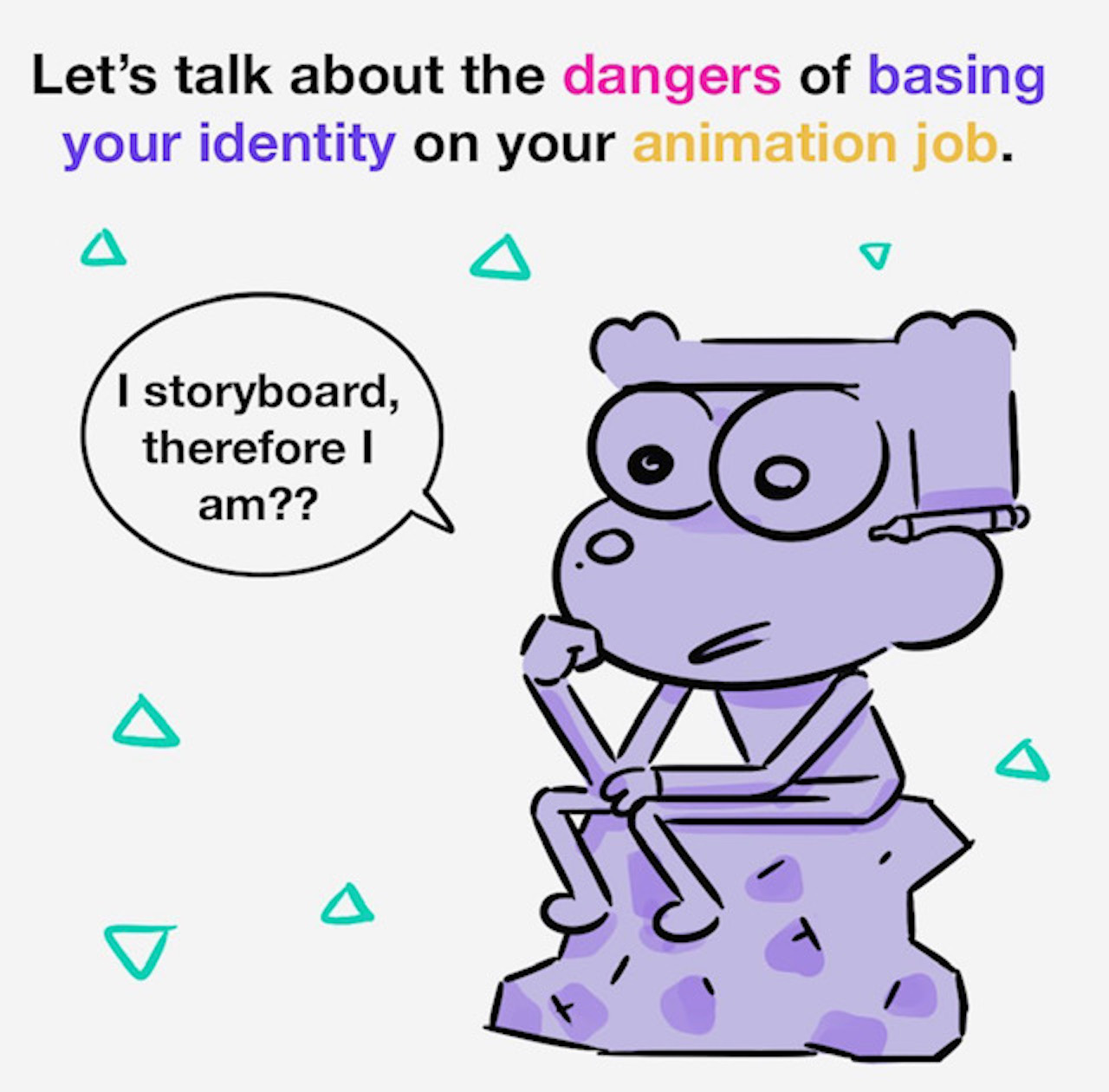
How do you decide which issues to cover in your posts?
I’m really pretty impulsive about it. A lot of the time I’ll go for walks at night to clear my head and just be stewing about some situation that comes up on a production, or be just sort of ruminating about the many expectations placed on storyboard artists, and realize, “Oh hey, I could make a comic about this.”
I’m actually always worried I’m going to repeat myself or the stuff I’m saying is not very insightful or applicable to other people. I can really only speak to my own experiences, and I try not to just broadcast statements that I know are going to be popular for attention. I also understand that I’m a cis male, and other more marginalized animators may have a completely different experience in the industry.
If anything, I hope any issues about working in animation I bring up might trigger someone else to talk about their experiences. For example, I love the IATSE Stories Instagram account that shares some of the horrible issues people on live-action shows are dealing with. Luckily I haven’t dealt with any problems near that magnitude, but seeing more folks working in entertainment feel comfortable and empowered to share their stories only seems like it can be a good thing!
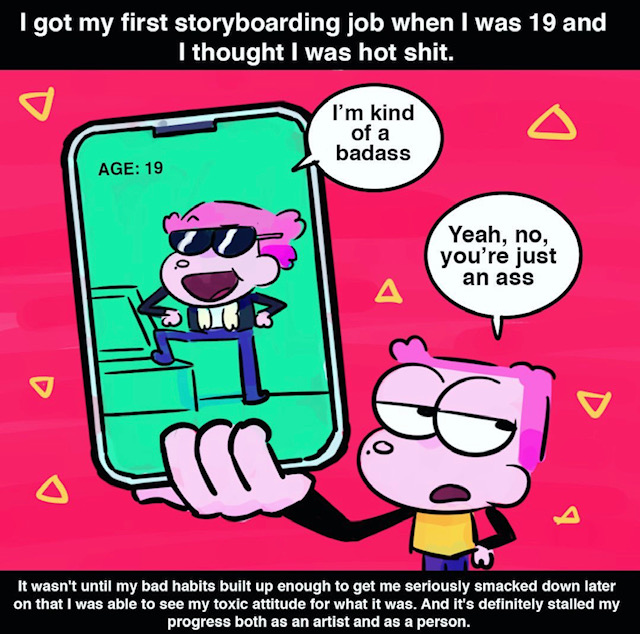
What kinds of reaction have you received? Have any surprised you?
I’ve been pretty surprised at how much people do seem to relate to some of the things I’ve posted! I don’t have a huge following, but it’s extremely validating and satisfying when people leave comments saying my work is resonating with them.
Sometimes I get really thoughtful messages and DMs from people, and it always makes my day to know something I made connected to someone. On the other hand, sometimes I’ll post something and get people armchair-diagnosing me with ADHD or some other mental illness, and telling me I’m being irresponsible for glorifying certain bad work habits by even talking about them. It’s like, wow, I never realized I had so many doctors following me!
I kid, but actually I’m always amused by the range of reactions I get and try not to take any of this too seriously. The positive reactions seem to outweigh the negative ones, and at least the negative reactions are sometimes funny.
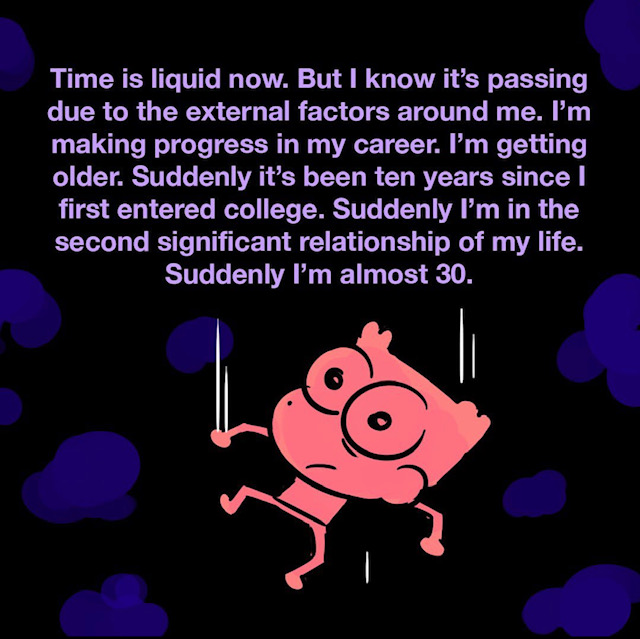
In your experience, how common is it for artists to be encouraged to talk about these issues in the workplace?
A lot of this type of discussion happens between animation employees, but it’s usually when the office doors are closed or in hushed tones in your cubicle. It frustrates me to see the way “new media” shows are normalizing tighter budgets and shorter schedules. Sometimes it feels taboo to even acknowledge it’s happening.
But with the way our counterparts in our sister unions are making themselves heard lately, I feel hopeful some of these issues can be addressed. Streaming is not new media anymore, it’s just the new normal. So we’ll see what happens.
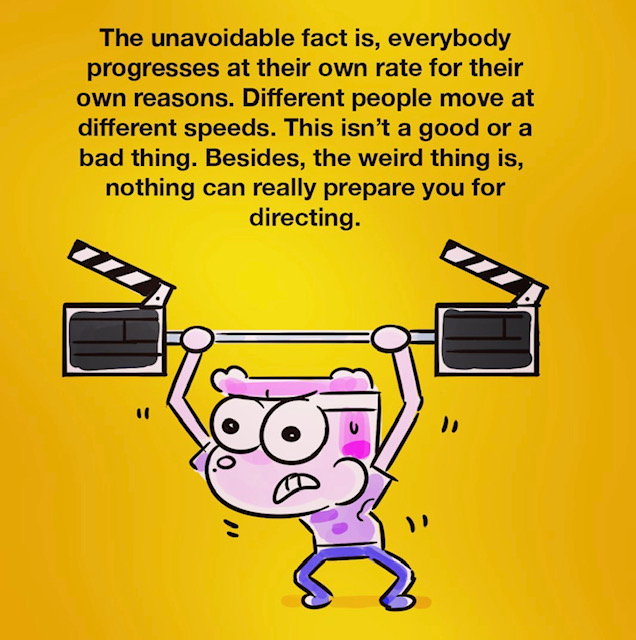
In a general way, the pandemic has led society to grapple with some of these matters, like burnout and depression, more openly. If Covid caused one lasting change in working conditions in the animation industry, what would you want it to be?
I hope work-at-home continues as an option. Right now, I’m starting my first directing gig, and I enjoy being able to have the protection of my own personal cave as I figure things out, ha. On the other hand, I have a lot of friends who really miss the camaraderie and structure of working in the office, and I completely understand that having a separation between work and home is important for a lot of people.
But personally, I enjoy the flexibility of being able to work remotely. I also find myself less productive when I feel like I’m on display (which is how it can sometimes feel working in-office). The pandemic has caused everything in my life to narrow to the point where work is the main thing I think about, and that’s kind of shitty.
I don’t know if this makes sense, but I sort of hope this strange new world brought about by the pandemic does cause people to reassess their priorities in life. Although animation is — for a lot of us — our passion in addition to a career, we need to collectively decide what’s healthy for us as individuals, and find a way to make taking responsibility for maintaining our mental health a real priority.
